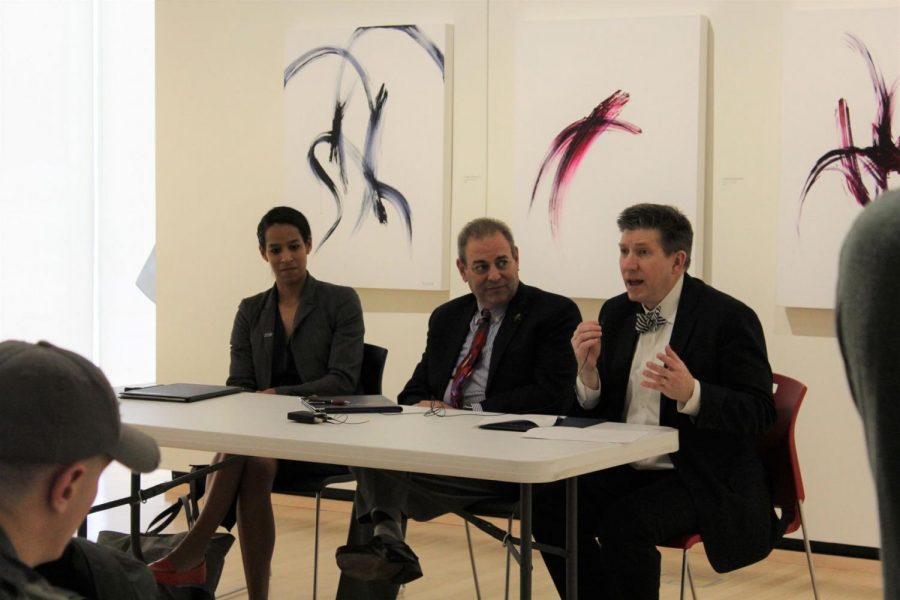Sticks and Stones: Discussion of the power of words
April 6, 2019
Words will sometimes hurt.
On Thursday April 4, the Rita Blitt Gallery hosted a discussion on free speech titled Sticks and Stones: The Power of Words, What Can Be Said, What Should be Said and What is Really Prohibited with Professor Jeffrey Jackson, Marc Fried and Laura Bond from ACLU Kansas. The panel discussion was overseen by Kelly Erby as an installment of WU-mester, this semester’s topic being Freedom of Speech and Expression.
The panel began with opening statements from each of the three members on their knowledge of freedom of speech based on their respected careers and expertise.
“There is no concept of hate speech in the first amendment,” began Jackson. “This makes regulating hate speech somewhat problematic. When you think about how the constitution handles speech, we’re talking about two different things. One: what is that particular type of speech and, two: what about the venue in which that speech is taking place.”
Fried and Bond shared similar sentiments in generalizing that freedom of speech was not intended to protect hate speech, but each judgement of hate speech is situationally dependent.
Fried, being on the University Counsel, has heard voices from community and campus members about wanting to include offensive speech as hate speech. He offers the point that offense is decided by the person offended.
“If we’re consistent with how sexual harassment and other forms of harassment work, it’s not that the person who said it intended for it to be hateful or offensive, it’s how the person who heard it interpreted it,” said Fried.
“The ACLU as an organization has always had a singular view of free speech,” said Bond, “and that’s that it should be restricted as little as possible. That’s derived from Justice Brandeis’ case called Whitney v. California. Essentially he said that the remedy for hate speech, or bad speech, is more speech. If you let good speech and bad speech get in the same space, the good speech will beat that out.”
After opening statements, the discussion opened to a question and answer session. An audience of over fifty students, staff and community members gathered in the gallery to add to and gain from the discussion.
Topics brought up in further discussion included subjects such as Title IX, limitations on content in the classroom, fighting words, differences between freedom of speech at public and private schools, recent related events, protecting first amendment rights of students and several more.
The next WU-mester event will be Monday April 8 at 1 p.m., also in the Rita Blitt Gallery located in White Concert Hall. The discussion will be over freedom of press in Indian countries. Be sure to attend to be a part of this important ongoing discussion of freedom of speech.



